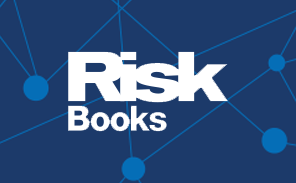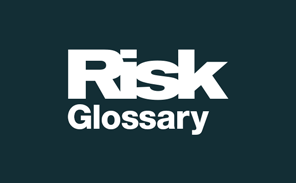Stress-testing and scenarios against climate risk
View AgendaKey reasons to attend
- Assess the physical and transition risks of climate change
- Learn from a climate risk stress-testing case study
- Integrate biodiversity risk into climate scenarios
Customised training
Does your team require a tailored learning solution?
We partner with leading tutors and Risk.net’s editorial team to design learning solutions that drive real impact for your team, every step of the way.
About the course
This learning event will provide participants with an in-depth understanding of climate risk stress-testing frameworks, with a focus on incorporating important inputs from diverse initiatives and regulations and utilise essential data to effectively evaluate climate risks.
Through the exploration of climate risk modelling methodologies, participants will analyse a top-down versus bottom-up approach and how climate risk manifests in existing financial and non-financial risk types. Participants will address key considerations for building climate change into scenario analysis and the impact of various aspects of physical, transitional and economic scenarios including inflation and emissions prices.
Participants will consider the challenges associated with gaps in modelling and data and review case studies that will foster productive discourse around a rapidly evolving topic.
What participants say:
- “The course content was extensive and highly relevant to my role. Navin is an excellent presenter, combining deep subject-matter expertise with a clear, engaging communication style.”
- ”Clear, insightful and grounded in real-world experience. This training helped me demystify the complexities of climate stress-testing.“
- ”Great balance between regulatory context, scenario design and technical application. Ideal course for those responsible for implementing climate risk frameworks
Pricing options*:
- Early-bird rate: save up to $800 per person by booking in advance
- 3-for-2 rate: save over $3,000 by booking a group of three attendees
- Subscriber reward: save 30% off the standard rate if you are a Risk.net subscriber
- Season tickets: cost-effective option for groups of 10 or more. Learn more
T&Cs apply
What participants say:
- ‘I had absolutely no knowledge of climate stress testing, but by the end of the course, I had a deeper understanding of the building blocks for a climate scenario’
Learning objectives
- Identify the components of successful climate risk stress tests
- Evaluate regulatory approaches to climate stress-testing among regions
- Assess key data and modelling challenges in climate stress-testing
- Align climate risks with financial and non-financial risks
- Navigate between diverse climate-related disclosure standards
- Implement best practices in short-term scenarios
Who should attend
Relevant departments may include but are not limited to:
- Stress-testing
- Climate risk
- Model risk
- Risk management
- Data management
- ESG
- Sustainable finance
- Transition finance
Agenda
May 5–7, 2026
Live online. Timezones: Emea/Apac
Agenda coming soon
Register interest
July 21–23, 2026
Live online. Timezones: Emea/Americas
Agenda coming soon
Register interest
Tutors

Navin Rauniar Risk Learning Faculty
Sustainability adviser
PRMIA
Navin is an ex-banking professional, and most recently was working as a senior leader and practitioner, with 20+ years of banking, corporate, and big four experience. He advises board and CxO members across business and technology, using domain expertise that focuses on sustainability, capital markets, and risk management, driven by prudential regulation in ESG, climate risk, carbon markets, sustainable financing, net zero, and capital management impacting an institutions’ strategy, governance, and implementation.
Navin was most recently leading the sustainability business and technology delivery for TCS and Tata clients. His international experience assisted in building diverse global teams.
Navin sits on a number of government and private industry committees, developing and influencing public policy on sustainability standards. Navin supports the financial markets community via mentoring of professionals and serving as the co-chair of the PRMIA ESG Working Group & PRMIA SteerCo. He is a regular speaker and chair at conferences, as well as a frequent commentator and author to the media on financial market regulations, including a column on sustainability that is published in ILFR.
Expand your learning
The premier meeting place for the risk community. Providing clarity and guidance on the fast-changing regulatory landscape of capital, credit and market risk, liquidity and derivates use.
Risk Journals deliver academically rigorous, practitioner-focused content and resources for the rapidly evolving discipline of financial risk management.
Risk Books are authored by leading professionals and academics. With over 150 books spanning 1,000s of chapters, our publications team is committed to connecting readers with these world class experts.
Regularly updated by our team analysts, journalists and producers, our glossary demystifies the terminology and acronyms used in risk management, risk transfer, policy, technology and innovation.



